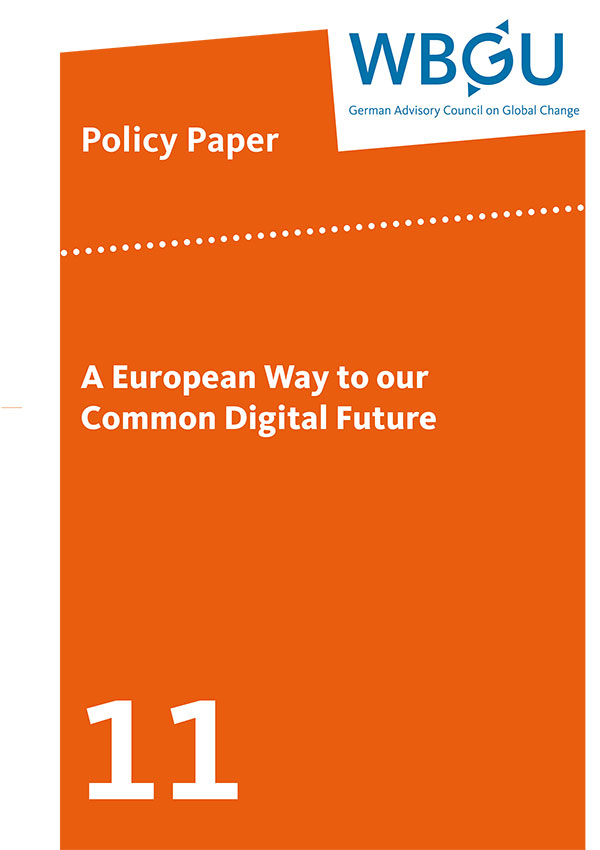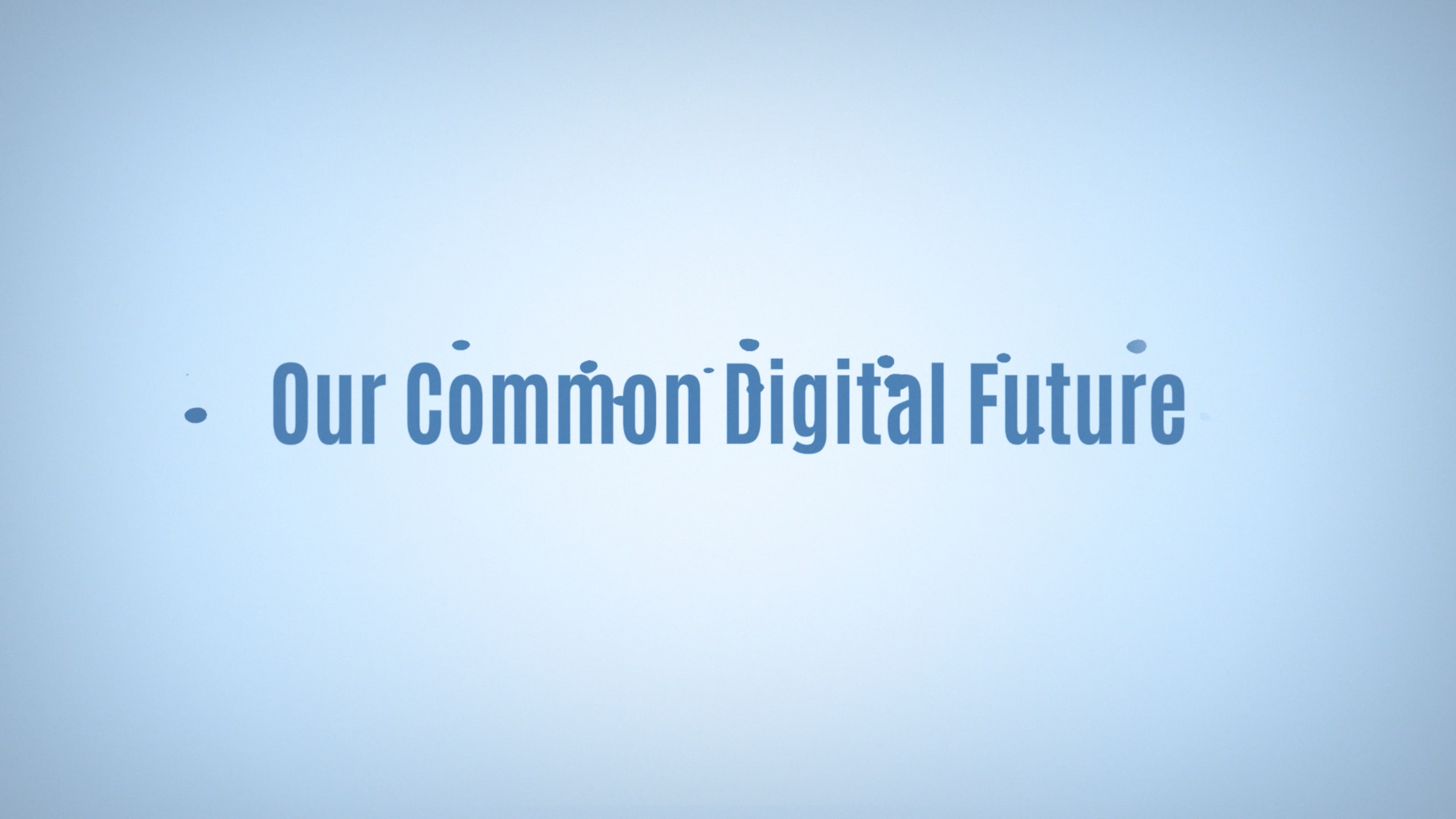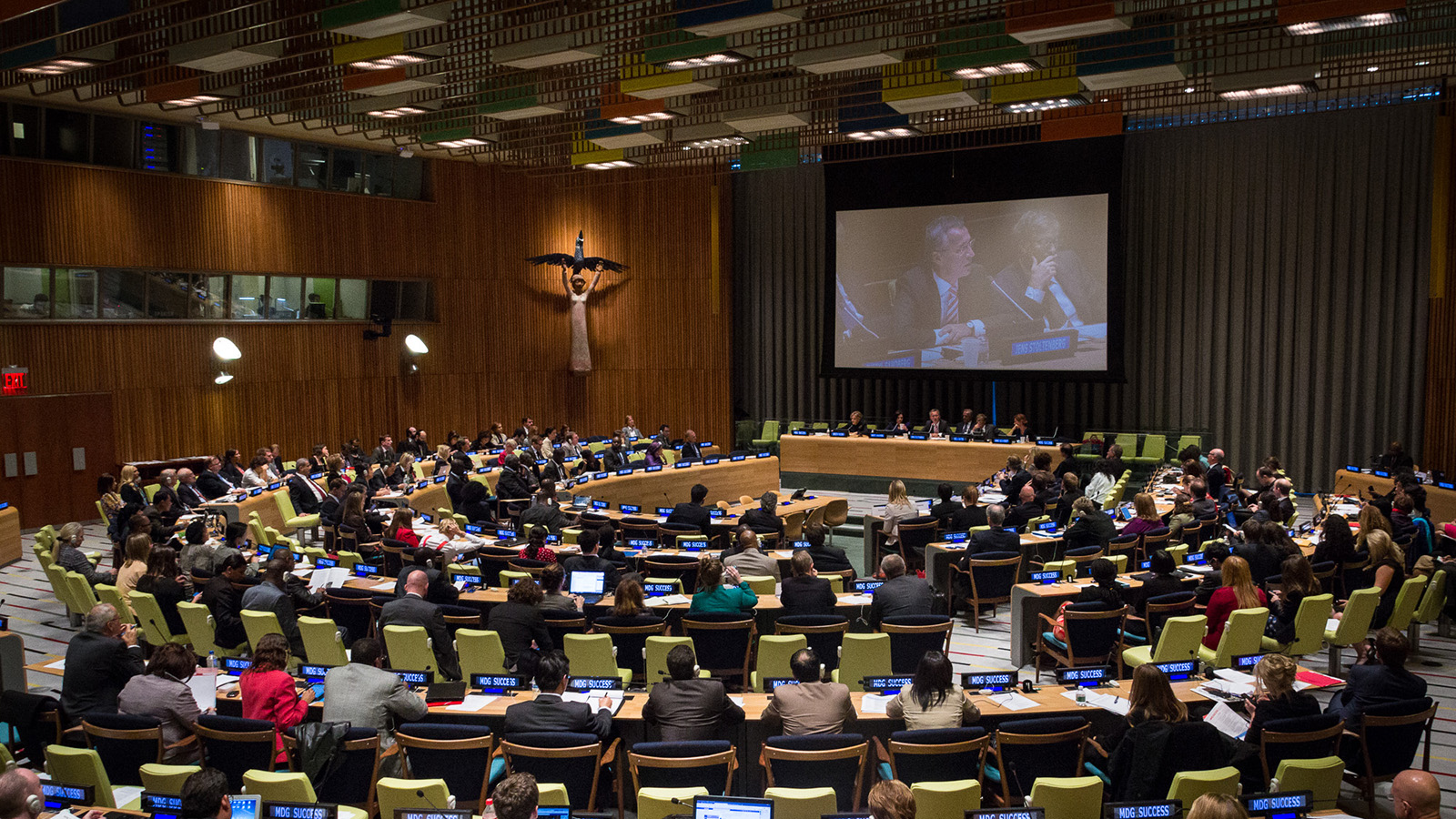
Policy Paper
A European Way to our Common Digital Future

Germany should build upon the Green Deal announced by EU Commission President Ursula von der Leyen and work towards a close integration of digital change and sustainability. To this end the WBGU presents cornerstones of a European way to a common digital future.
Overview
Particularly during its presidency of the Council of the EU in 2020, Germany’s Federal Government should work towards a close integration of digital change and the Transformation towards Sustainability. The new EU Parliament and the new European Commission should also pursue this goal.
More about this topic
Video
Flagship Report
Policy Paper
Share this section
- Integrate the opportunities and risks of digitalization into EU sustainability policy: The EU needs an implementation strategy for the SDGs that also places digital technologies at the service of sustainability and addresses its risks. In the same way, digitalization should be embedded in the 8th Environmental Action Programme from 2021 onwards.
- Actively shape digital policy in line with sustainability goals: Ecological and social aimsthat can be reached through digitalization shouldbe pursued with equal emphasis, e.g. via the European Digital Agenda, the European Commission’s Strategy for Artificial Intelligence (AI), or measures within the framework of the Digital Europe programme. Negative (side) effects should be identified and minimized at an early stage.
- Involve the private sector more in the provision of data: Up to now, EU data policy has concentrated on the protection of personal data and the use of data from public authorities. This does not go far enough: accessibility to, and the re-use of (non-personal) private-sector data should also be improved in order to create data that can be used for the common good and digitalized (knowledge) assets.
- Develop and apply artificial intelligence in a sustainable way: The EU should be consistent in following its value-based approach in the application and development of AI systems: fundamental rights, human dignity, environmental and sustainability principles are the normative foundation of the EU and non-negotiable. There is an urgent need for (framework) legislation on the development and handling of AI, since ethical guidelines and debates alone are not enough to ensure a corresponding development and application. In addition, research on explainable and secure, i.e. reliably verified and validated, AI should be promoted and used to ensure trustworthy, fair and accountable procedures.
- Ensure access to digital commons and basic services through public-service information and communication technology (ICT) infrastructures: Individual inclusion, personal development, environmental protection, fair competition and a functioning digital public sphere require access to data and services such as cloud services, mobility platforms or a search index. Their almost exclusively private-sector provision is not always in the interests of the common good. The EU’s task should be to create or ensure public-service digital and digitalized infrastructures to make data and information accessible for the common good and to offer alternative (basic) services under public law.
- Gear EU research policy and promotion of innovations consistently towards sustainability goals: Responsible Research and Innovation (RRI) should be applied as an overarching concept of European research and innovation policy in order to explicitly embed the orientation towards sustainability goals and to avoid unintended impacts. The high levels of protection of the environment, consumers and occupational health and safety in the EU must not be weakened by the innovation principle currently under discussion. Horizon Europe’s missions should aim to integrate digital change and the Transformation towards Sustainability and strengthen transformative and transformation research.
- European digitalization model as a priority in foreign policy: The EU should also promote the integration of sustainability and digitalization internationally. It should initiate a summit on ‘Sustainability in the Digital Age’, e.g. for 2022, symbolically 30 years after the Earth Summit in Rio, to set the course for the necessary continuation of the sustainability agenda until 2030 and beyond.
More on the Subject
PDF and eBook Downloads
Deutsch
English
- Download: A European Way to our Common Digital Future (PDF 2 MB)
- Download: A European Way to our Common Digital Future (eBook epub 1 MB)



